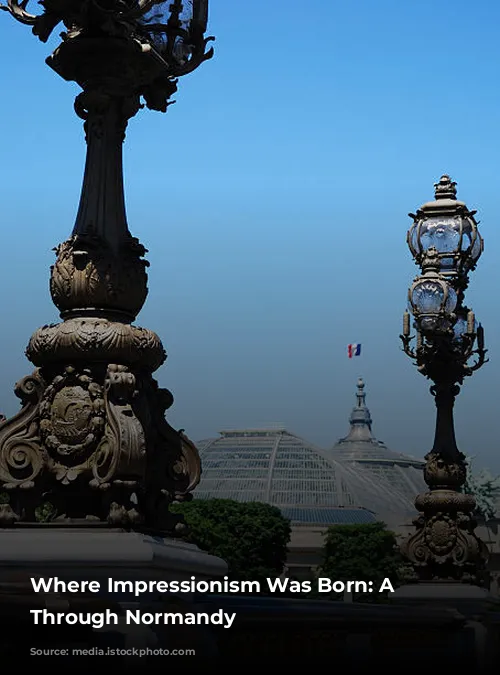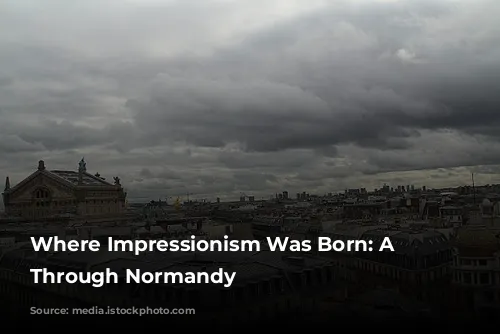Imagine a coastline sculpted by wind and sea, where the sky and the water dance in an ever-changing ballet. This is the Alabaster Coast of Normandy, where the dramatic chalk cliffs rise like jagged teeth into a constantly shifting sky. Here, on this wild, beautiful coast, impressionism was born.
A Coast of Captivating Change
Standing on a grassy bluff overlooking Étretat, with the relentless drizzle drumming on our umbrellas, Anastasia Kharchenko, head of cultural partnerships at the Jardins d’Étretat, describes the constant allure of the scene: “Every day I’m here, the sky and the sea are different.” She speaks of days when fog blankets the horizon, obscuring the world, and months when the colors explode in a breathtaking symphony. This is the very essence of impressionism, the fleeting moments of beauty captured in paint.
The Inspiration of a Wild Coast
Étretat’s famous chalk arch and needle rock formations jut out from the cliffs, like fingers reaching towards the crashing waves below. These natural wonders drew the attention of Claude Monet, who was captivated by the unpredictable weather of this rugged coast. In the late 19th century, Monet visited Étretat repeatedly, capturing the ever-changing light and atmosphere in over 100 paintings. The beauty of Étretat, with its dynamic light and ever-changing moods, provided the perfect canvas for Monet’s impressionist vision.
A Revolution in Paris
Monet and his fellow artistic revolutionaries, including Renoir, Degas, and Cézanne, were dissatisfied with the traditional artistic standards of the Paris Salon. In 1874, they broke free from the confines of this established system, staging their pioneering Impressionist exhibition in a photography studio in Paris. This bold move marked a watershed moment in art history. It was a defiant declaration of independence, an embrace of the new and the unconventional.
The First Impressionist Masterpiece
One of the works presented in this groundbreaking exhibition was Monet’s “Impression, Sunrise,” a hazy, loosely brushed depiction of the industrial port of Le Havre, with a red morning sun reflected in the water. This painting, created in 1872, is considered the first impressionist work. It was, however, met with ridicule, with critic Louis Leroy coining the term “Impressionism” in a scathing review. Despite the initial criticism, the term “Impressionism” would go on to become synonymous with a revolutionary artistic movement.
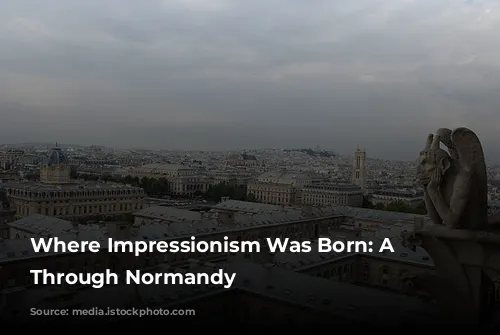
From Industrial City to Modernist Icon
Le Havre, the birthplace of Monet, might not seem like the dreamy cradle of impressionism one imagines. Today, the city is a stark contrast to the romanticized images of the 19th century. Its orderly grid of concrete apartment blocks, a product of reconstruction after the devastation of World War II, is a testament to the city’s industrial past. But beneath the concrete facade, Le Havre holds a unique charm.
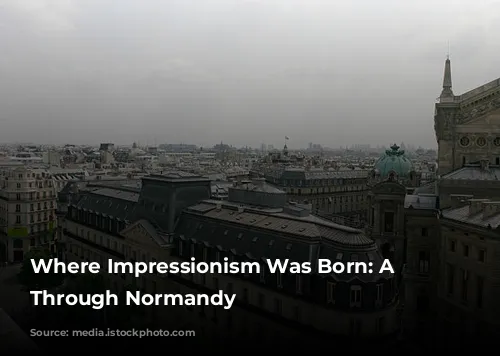
A City of Contrasts
In the 1960s, Le Havre’s urban grid, designed by architect Auguste Perret, was criticized for its starkness, earning the city the nickname “Stalingrad-on-Sea.” However, over time, its distinctive modernist architecture has been recognized for its unique beauty. UNESCO awarded Le Havre World Heritage status in 2005, acknowledging its unique urban landscape. Le Havre, once considered an industrial eyesore, has emerged as a symbol of modern urban design.
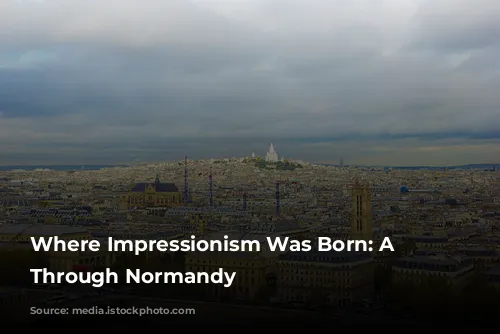
The Legacy of Impressionism in Le Havre
As we stroll along the sea-sprayed boardwalk of Le Havre’s Saint Adresse neighborhood, where Monet once lived, our guide, Lise Legendre, explains the link between this industrial city and the birth of impressionism. “Here, we say that Normandy is the birthplace of impressionism,” she says, “but in order to become famous and to live from their art, they had to go to Paris.” Le Havre, the birthplace of impressionism, provided the inspiration, while Paris offered the opportunity to achieve artistic recognition.
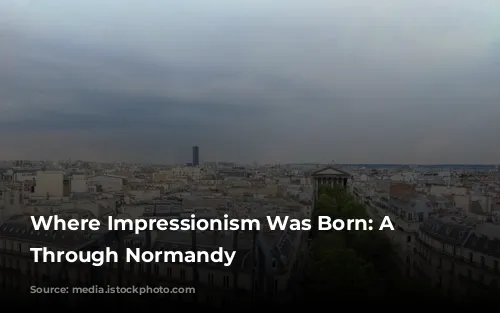
A City of Light and Color
Monet’s legacy lives on in Le Havre, where his childhood home stands amidst the modern cityscape. In the Musée d’Art Moderne (MuMa), a collection of impressionist masterpieces, including works by Renoir and Pissarro, offers a vibrant reminder of the movement’s artistic spirit. The museum’s large windows flood the space with natural light, echoing the importance of light in impressionist painting. In the heart of Le Havre, impressionism continues to inspire.
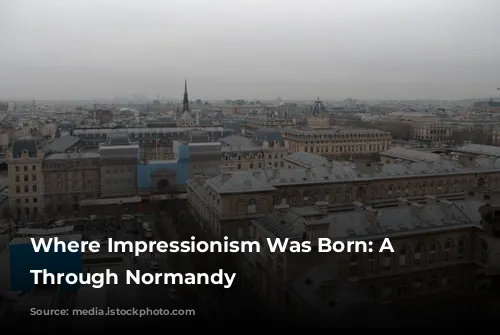
The Enduring Appeal of Impressionism
Géraldine Lefebvre, the new director of MuMa, grew up on Le Havre’s rue Claude Monet. She shares her insights into the enduring appeal of impressionist works, which resonate even after 150 years: “They’re daily life paintings. They’re full of life, colors, atmospheres. You can feel the landscape.” Impressionism, a celebration of everyday life, continues to touch the human spirit.
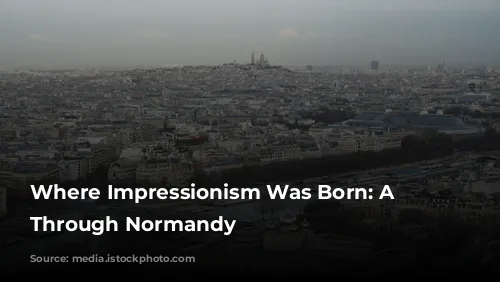
A Journey Beyond Rouen
Monet’s obsessive pursuit of light led him to Rouen, a charming city with pastel-colored half-timbered houses and a soaring cathedral. Here, he painted the cathedral’s intricate facade 28 times, capturing the changing light and atmosphere. Rouen, a city steeped in history, provided Monet with another source of inspiration.
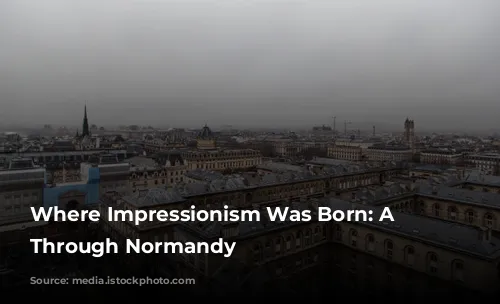
An Artistic Legacy
Rouen’s Musée des Beaux-Arts is hosting an exhibition by David Hockney, a contemporary artist who has found inspiration in the Normandy landscape. Hockney’s vibrant, playful works, alongside the masterpieces of Monet and his contemporaries, highlight the enduring power of art to capture the beauty and wonder of the world. The legacy of impressionism lives on, inspiring artists of all generations.
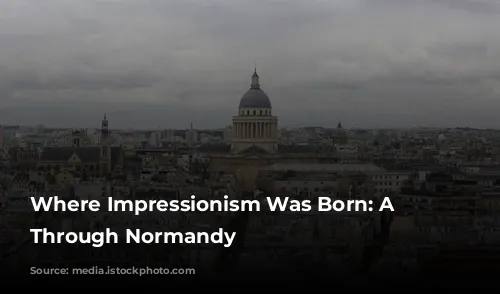
Normandy: A Place of Inspiration
From the windswept cliffs of Étretat to the vibrant city of Le Havre, Normandy is a region that continues to inspire. The spirit of impressionism, with its celebration of light, color, and everyday beauty, is woven into the fabric of this region. Whether you are drawn to the wild beauty of the coast or the artistic legacy of its cities, Normandy offers an unforgettable journey.
